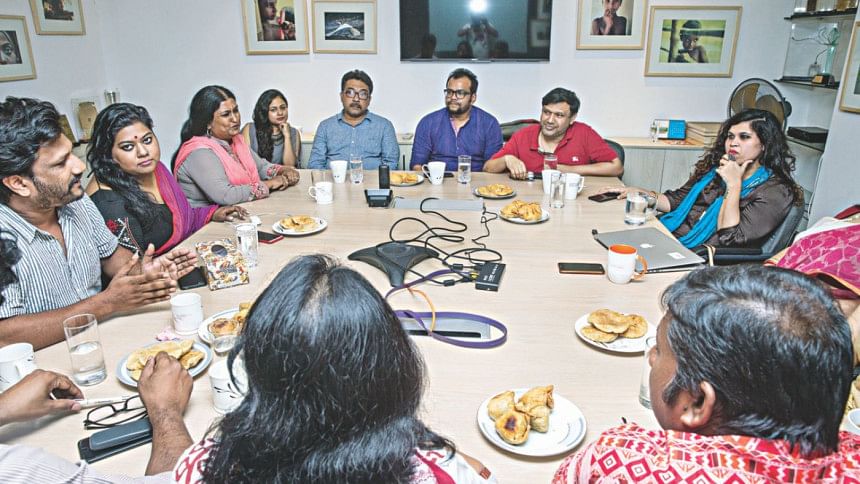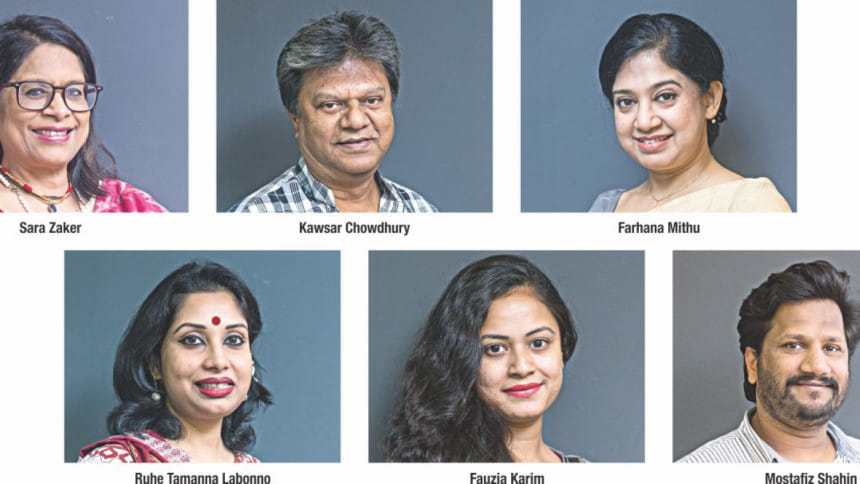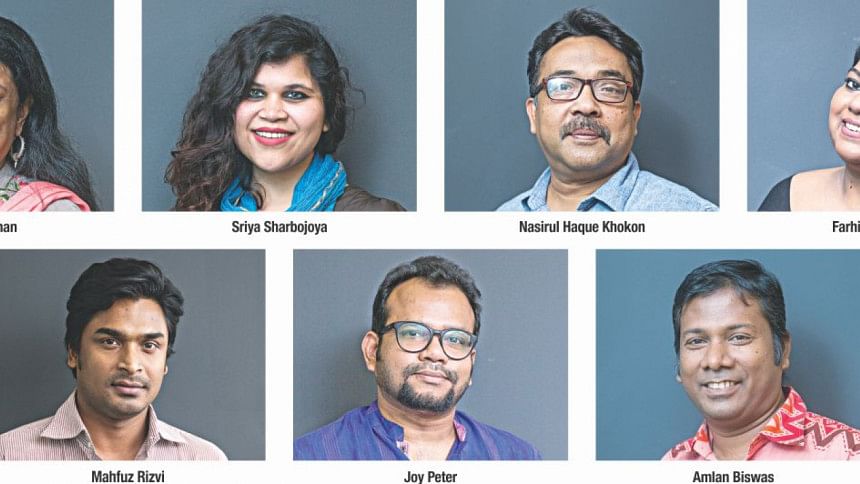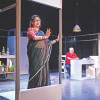Making Theatre Great Again

Nagorik Natya Sampradaya, the first ever theatre group in Dhaka, recently completed its glorious Golden Jubilee. They are also the first group in Bangladesh to sell tickets for a play, which was 45 years ago. To celebrate this momentous occasion, the group performed their marquee acts alongside festive cultural programs in the Bangladesh Mahila Samiti Auditorium from 13th to 15th April 2018 in "Nobo Natter Odhijatra". A special roundtable took place on 22nd April, where many backstage workers of Nagorik gathered together, and they talked about how to revive theatre and bring it back to the ever-evolving Bangladeshi culture. The meeting was moderated by Star Showbiz's editor, Rafi Hossain and was under the leadership of Sara Zaker, the Vice-Chairperson of Nagorik.
Asiatic's board room was bumbling with exuberance as the group discussion was about to start. Theatre personalities, the young with the promise of tomorrow and the veterans with the experience of yesteryears sought the answer to one question: what needs to be done in order to make the art of theatre accessible to the mainstream audience and revive its older glory?
Sriya Sharbojoya, a forever vocal advocate for the youth in theatres started off the conversation with a valid point in response to a question about the accessibility of the youth to theatres: "Look, I believe that at the heart of the problem lies a notion that theatre is something for a certain class of people. We cannot keep it in the bubble of our own 'intellectualism'. Think about it: a youngster today would tell you that he wants to be a guitarist or a singer; how many would tell you that they want to be a performer in theatre?" The point resonated across the board room, but naturally, not everyone had the same point of view. Mostafiz Shahin added, "Look, I am all in for the expansion of theatre, but you have to remember that it is our responsibility to make sure that a minimum standard should be there. There is absolutely no shortcut to theatre, so you have to go through a learning curve. Theatre is not for everyone."

The two contradictory opinions summed up the two schools of thought that a conscious theatre critic is likely to belong to. On one hand, there is a dire need for more venues outside of the usual Shilpakala Academy and Mahila Samiti. On the other, there is a more conservative concern for the quality of work that is being put out. "We need to understand the audience that we cater to. When we performed in the 70's and 80's, it was this very elite group of audience who wanted to boast about seeing the actors we find on the television screens live. It was also a sort of networking session with other elites. Today, it is not the case anymore. We have to adjust our content to what people want to see today," said Kawsar Chowdhury, a veteran member of Nagorik. Amlan Biswas, director and long-time light designer for Nagorik stated that quality is partially to be blamed: "When I joined Nagorik, my sole purpose was to be able to watch plays for free! I was completely enamored by the quality of performance of Aly Zaker, Asaduzzaman Noor and all the other amazing artists there. We don't really see that type of quality today. I have even told this to Chutlu bhai (Aly Zaker). We really have to uplift the quality in order to bring in audiences. If the play is good, audiences will come, it is as simple as that."
"I do agree with what Amlan said," stated Nasirul Haque Khokon, "Also, we need to stop blaming traffic jams for everything. We need to take responsibility for providing the audience with good plays, and also make it more accessible to them. There is a lot of politics involved in group theatre at the moment, and it is high time viable alternatives are produced for your average consumer."

Farhin Khan Joyita added that students in schools need to have access to basic education regarding theatre. "Students should really be taught about theatre from a young age. If they don't know about this particular art when they are younger, how are they going to develop interest in it at all? They're taught music in schools in most cases, so why not theatre?" Joyita put forth a valid point. "All in all," Sriya Sharbojoya added, "we need to make theatre cool again. We need to make theatre great again."
The Vice-Chairperson of Nagorik, Sara Zaker was mostly a keen observer during the discussion. Perhaps she made the most conclusive point: "Whatever happens, Nagorik will continue to entertain the audience and instill culture for as long as we can. We do not believe in any sort of conservatism and are always open to new ideas. As time goes on, we might not be at the forefront, but there will always be new blood. The new generation needs to be given space and I believe that they will take this art forward in whichever way possible," said the esteemed actor. "In celebration of Nagorik's Golden Jubilee, Nagorik has announced three annual awards for an upcoming playwright, actor and theatre organizer. We have also planned to give funding to 10 young theatre groups for new productions. There will be a big festival involving these productions."
By Sadi Mohammad Shahnewaz









Comments